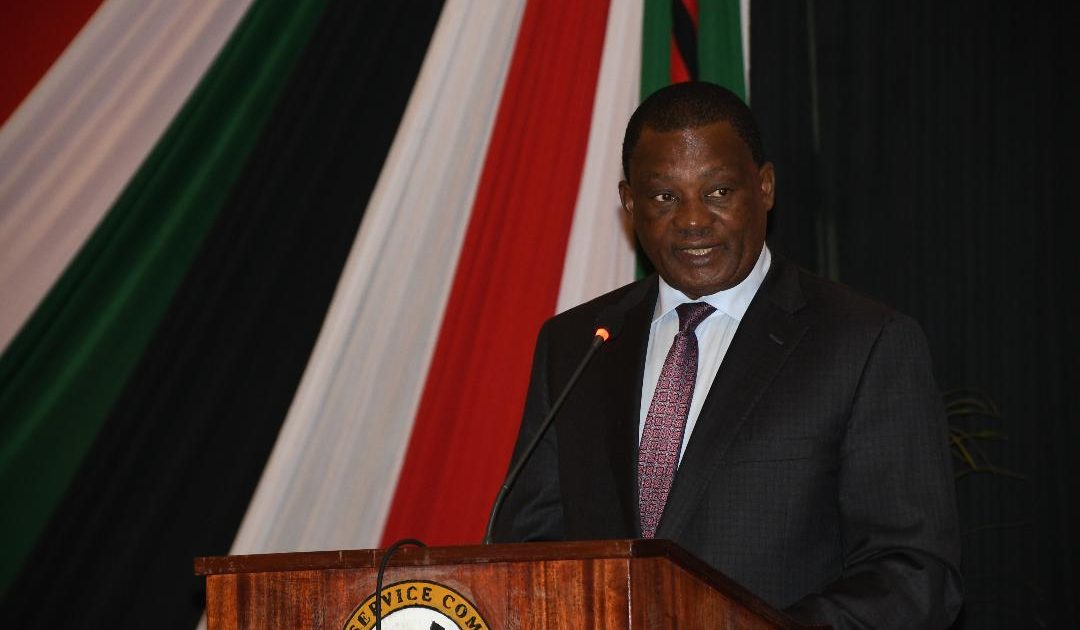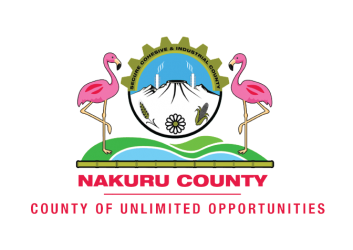Public Service Commissions delegates from Africa gathered in Nairobi on Wednesday for the Sixth Elective General Assembly and Conference of the Association of African Public Service Commissions (AAPSCOMs) to deliberate how the Commissions in the continent can drive public service delivery transformation through innovation and technology.
The three-day conference brought together delegates from 10 African countries, namely Eswatini, Ghana, Lesotho, Namibia, Nigeria, South Africa, Tanzania, the Gambia, Zambia, and Kenya, and representatives from Cameroon, Uganda, and Egypt, to deliberate on ways of supporting PSCs to develop and implement strategies that can improve service delivery in public service.
The annual meeting themed ‘Driving Public Delivery Transformation through Innovation and Technology ‘will also share experiences and best practices among public service in Africa and showcase impactful citizen-focused public service delivery reforms.
Speaking at the event held in the Safari Park hotel on Wednesday, Public Service and Human Capital Development Cabinet Secretary Justin Muturi said the strengthening of the Association needs to be supported because Public Service Commissions are central to achieving the United Nations sustainable development goal number 17.
He noted that the public service sector is a critical player and that no country in the world has developed without a strong public service.
“The public service provides public goods and services such as infrastructure, education, health, law, and order, “he added.
Muturi, at the same time, mentioned that access and delivery of public service continue to be a major area of focus in ensuring responsiveness to the needs of the citizens.
Referring to the theme “Driving public service delivery transformation through innovation and technology,” Muturi urged the Association to integrate technology in public service delivery.
“Having innovation and technology as per the theme challenges us to interrogate how public services can ride on the information technology revolution to address the revolving pressure in service delivery and other areas,” he said.
Muturi pointed out that the use of technology by governments holds enormous promise for both public servants and citizens.
He said the application of information and technology can eradicate time consumption as well as cumbersome processes that frustrate everyone and make governments more accessible to people.
The CS noted that the technological revolution has created avenues for engaging the young generation wishing to join government.
“Automation and artificial intelligence, which can perform routine, repetitive, or other tasks, are faster and more efficient than humans and could be put to good use in a host of other areas of public service, particularly those involving masses or paper work or queues of citizens waiting for service delivery,” he said.

He at the same time encouraged commissions across the globe to uphold constitutionalism while executing their mandates.
The CS said it’s imperative that commissions perform their roles diligently while promoting good governance.
He said the formation of AAPSCOMS has enabled various nations in Africa to come together and share noble ideas that promote efficiency and service delivery.
“Bringing together public service professionals from different countries to a joint conference promotes synergy for exploring ways of improving efficiency and effectiveness,” Muturi said.
“I therefore urge you to relentlessly pursue the outcomes of the discussions to ensure that every commission leaves this conference with a takeaway that will make a positive change to the citizens,” he stated.
Speaking at the event, the Vice President Eastern Africa Region and Chairman of the Public Service Commission, Kenya, Amb Anthony Muchiri, emphasised on the need for the continent to embrace technology, noting that it is crucial moving public service to the next level in fostering economic growth, inclusive development, and service delivery.
Amb. Muchiri said with the evolving challenges in the 21st century, rapid technological advancement, and a young and urbanising demography, the Public Service Commissions need to leverage innovation and technology to enhance more efficient and effective methods of service delivery and to create solutions to current challenges.
“With every passing year, new technologies and services are emerging over the horizon, and as digital technologies become a cornerstone of our daily activities, our governments must also adapt to this new reality,” he added.
“Technology is a catalyst for transformation that can be leveraged to improve the performance of public institutions and make them more responsive to public expectations; this will foster economic growth and inclusive development,” he said.
Amb. Muchiri said Africa has tremendous potential in Artificial Intelligence (AI), which can be used to address development challenges, improve public service delivery, reduce disparity, and drive economic growth and urged the member countries to leverage on the existing technologies, such as AI and data analytics, to transform public services.
“We must ask ourselves how we can leverage evolving technologies in bridging the digital divide between Africa and the rest of the world and how we can encourage homegrown innovations and technologies that are inclusive.
In regards to achievements made in Kenya in integrating ICT in public service, Amb. Muchiri announced that the government has over 16,000 services from 100+ ministries, counties, departments, and agencies under the e-citizen platform, which represents 84 percent of the targeted 19,000.
“This platform has ensured previously unserved and undeserved regions and groups, such as persons with disabilities and marginalised ethnic communities, are no longer excluded from government services, “he said.
Muchiri added that the platform has also helped curb leakages that encouraged corruption, thereby contributing to more revenue collection for the government.
He attributed governments investment in digital infrastructure, innovation, entrepreneurship, and development skills to increased access to public services, improved connectivity in rural areas, job creation among the youth, and a thriving digital economy that is consistent with the Kenya Vision 2030 and the digital superhuman pillar of the governments Bottom-up Economic Transformation Agenda.
Dr Choolwe Beyani , President , Association of African Public Service Commissions and Chairperson, Civil Service Commission of Zambia said the theme of the meeting could not have come at better time as governments seek to transform and become accountable to the public.
He said commissions are key in ensuring that public service delivers, appointments are rightly done, and there is an incalculable good culture in the service.
“PSCs should continue to share the good practices as they carry the responsibility that there is continuity as holders, which should be passed to the next generation, “he said.
By Bernadette Khaduli and Douglas Namunane





